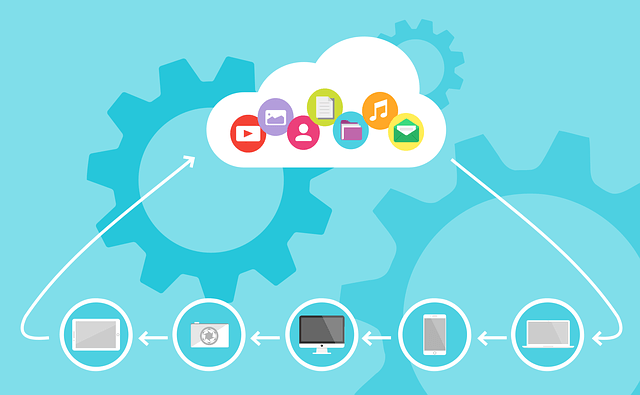Cloud Backup and Offsite Backup Solutions For Your Business

The last thing you want to happen is to lose your data or to have it fall into the wrong hands. Data, whether it’s a sales report or top-secret corporate plans, is one of the most important assets for a business. This is why it is crucial to have a reliable backup system for data protection. Most people use portable hard drives to store their data. However, this in itself is not the best solution, especially if your backup media is physically stored in the same place as the source. To add an extra layer of protection and reduce the risk of data loss and/or reduce single point of failure, many organizations choose to backup their data off-site.
What is Cloud Backup?
Cloud backup involves sending a copy of your data to a remote server via the internet. The server is usually managed by a third-party online backup service provider. It helps to improve a business’ data security at a minimal cost to the organization. It also aids disaster recovery in case of an unforeseen circumstances that can lead to the destruction of data.
Cloud-based data storage has become the convenient solution for organizations and individuals to safely and securely store and protect their data offsite thus reducing the risk of data loss.
Cloud backups can happen in one of three ways:
- Direct backup to the public cloud such as Amazon web service
- Backup to a service provider data center
- Making a copy of cloud-based data to a cloud backup service
Physical storage media are vulnerable to damage, be it was from smoke, fire, water, heat, dust or natural disasters which means that private storage facilities need to have built-in controls to guard against such environmental factors. Physical storage security is really a matter of how secure a business facility is against physical intrusions. With cloud backup, physical risks to data are significantly reduced.
While cloud-based data backup and file hosting services address the different issues and challenges faced by onsite physical backup methods, there are still some risks involved. This is because cloud backup services ultimately rely on physical devices for storage. Cloud backup providers have remote data centers that are just as vulnerable to natural disasters. These service providers can also close down or change their services, putting clients in a difficult position. It is important for organizations to look at alternative and secondary data backup plan tools and solutions.
Offsite Backup
There are several options that are available to organizations looking for offsite data backup, they include the following:
Internet Backup Services
One option is utilizing the services of an internet backup service provider. An internet backup service provider will upload copies of your data onto remote servers. This is done automatically over the internet. These service providers provide software that will automatically back up an entire hard drive to the cloud. They often keep multiple versions in different locations which guards against disasters and total destruction. These services are can be very useful to businesses. There are other backup tools that individuals and small business can use. They include file-sharing services such as Dropbox, Google Drive, OneDrive or iCloud.
Physical Storage Media
Despite the drawbacks, physical storage media are still valuable for data backup. You can improve your data security by using multiple storage devices. These devices can be easily moved around so you don’t have to put them in one physical space. If you have safety concerns, then you can store your external drive or USB in a safe to keep it secure. Secondary drives or Network-attached storage (NAS) devices can also be installed. NAS devices hold additional drives in your network and will constantly mirror your main hard drive so that if it fails, you still have access to your data through your secondary drive. Popular NAS devices include QNAP, Drobo, and Synology.
Automatic Backups
PCs and Macs come with backup software that you can use to store files in secondary drives or in the cloud. This particular backup solution are a series of backup tools that help to sync your data without requiring your intervention. Time machine on the Mac allows users to incrementally backup data to an external drive. A similar function is performed by Backup and Restore on Windows. While iCloud helps to sync data to the cloud on both Mac and Windows.
Performing regular backups and storing it offsite is an important security practice not just for large enterprises but also for small businesses. Accidents can happen and you may lose years of acquired data. Remote backup tools offer a lot of desirable features and most importantly, secure storage. Companies that specialize in offsite cloud storage are better equipped to adapt to new technologies and have built-in systems to prevent data loss thus improving data security for businesses. At SDTEK, our secureTEK Backup and Disaster Recovery includes a robust BDR solution which includes onsite and offsite backup. Please contact us today to speak with a team member about your businesses cloud backup and offsite backup needs.
The post Cloud Backup and Offsite Backup Solutions For Your Business appeared first on SDTEK | San Diego, CA.


